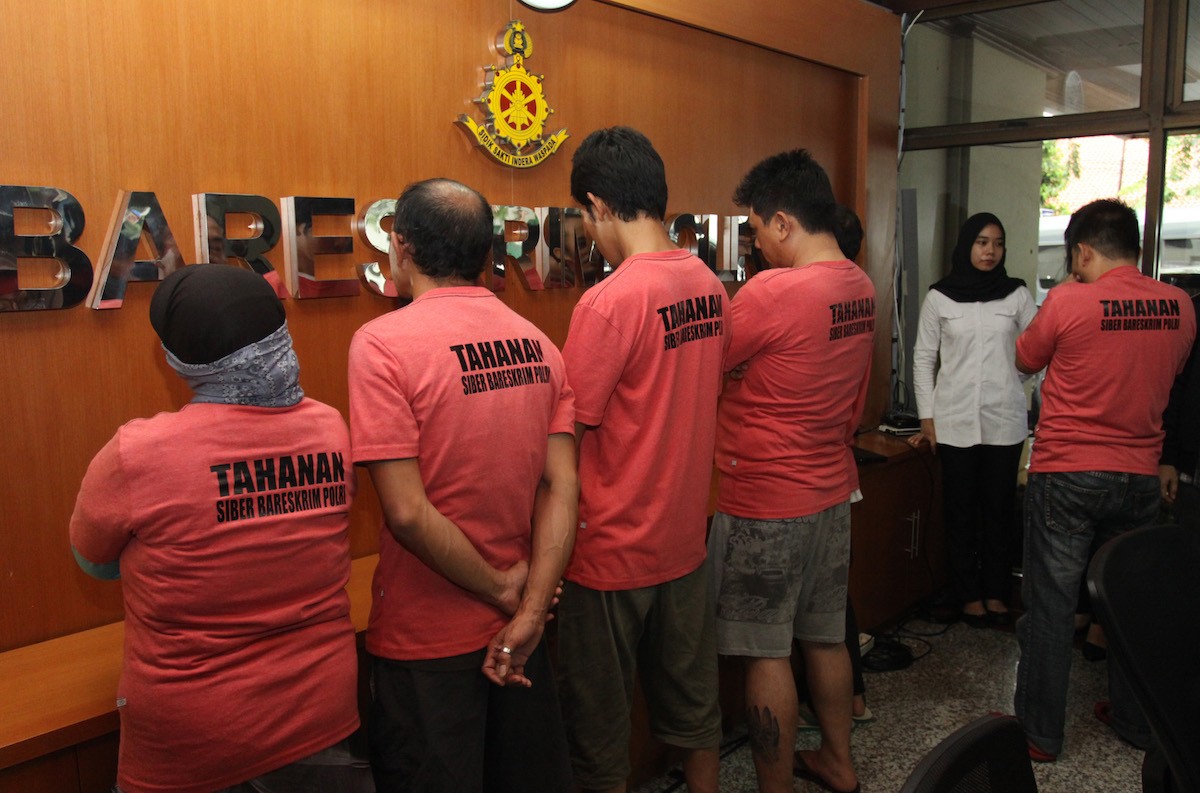Popular Reads
Top Results
Can't find what you're looking for?
View all search resultsPopular Reads
Top Results
Can't find what you're looking for?
View all search resultsReport unveils Muslim Cyber Army’s modus, purpose
Change text size
Gift Premium Articles
to Anyone
W
hile recent arrests of alleged Muslim Cyber Army (MCA) members has shed light on the group’s network and online operations, several questions remain: what is this organization and how does it operate?
Late last month, the national cyberpolice uncovered a syndicate called the Family MCA, which allegedly spread provocative rumors and hate speech ranging from the resurrection of the Indonesian Communist Party (PKI) to the persecution of ulema through various social media platforms.
Six people have been arrested from different areas in Indonesia on suspicion of masterminding the shadow group.
A report released by digital rights group the Southeast Asia Freedom of Expression Network (SAFEnet) on Tuesday revealed more details on the organization, including its method of attack and purpose.
SAFEnet regional coordinator Damar Juniarto said the study found a connection between the MCA and vigilantism across the country last year.
The MCA was suspected of being behind a viral video that invited viewers to track down people who had insulted Islam. The video, which displays a logo of the “Blasphemer Hunting Team”, was known to be related to a Facebook page named “Database of People Wanted by the Muslim Community”, which included a list of people accused of insulting Islam with their personal information.
“After personal information was displayed on Facebook pages, vigilantism would begin within two to five days. [Mass] organizations such as the Islam Defenders Front [FPI] typically harassed and intimidated the accused person into issuing an apology and/or dragged the person to the police and demanded they detain him or her for offending Islam,” Damar wrote.
SAFEnet, in cooperation with the antipersecution network, said it found evidence that the shadow group had actively manipulated the public to carry out vigilantism, such as through the creation of fake accounts mimicking the profiles of real people.
“[They would] use these profiles to spread information designed to infuriate or offend the Muslim community.”
This modus, SAFEnet said, had been used several times, with an example in Bintan, Riau Islands province, where the shadow group made a fake social media account for activist Parlindungan Sinurat and used it to publish a post considered to be insulting toward a verse in the Quran.
A mob responded to the post by going to Parlindungan’s house. The police later named Parlindungan a defamation suspect.
According to the report, police recently discovered that the group had produced material that aimed to undermine former Jakarta governor Basuki “Ahok” Tjahaja Purnama while he was seeking reelection in 2017.
Several scholars have said Ahok’s failed reelection bid was caused by sectarian issues. He is currently in prison after the court found him guilty of blasphemy for suggesting that some people had abused a Quranic verse to block his bid.
SAFEnet said the MCA was currently active in West Java, Central Java and East Java, where a gubernatorial election will be held in June. “Our monitoring has shown that MCA accounts and bots have been deployed to support at least one of the candidates in West Java,” it claimed.
While the rights group said the MCA comprised several variants, it was mainly focused on discrediting President Joko “Jokowi” Widodo, who seeks reelection in the 2019 presidential election. “The MCA has played an important role in keeping issues alive that were prominent in 2014, sharpening them further and deepening social conflict.”
“Their endgame is to replace Jokowi during the 2019 presidential election, as regime change in Indonesia is usually followed by prominent social conflict and events,” Damar told The Jakarta Post on Tuesday.
The report echoed a statement made by Savic Ali, a researcher with the department of communications and information of the Nahdlatul Ulama (NU), the country’s largest Muslim organization. The researcher said content produced by the MCA was more political rather than ideological. (evi)










